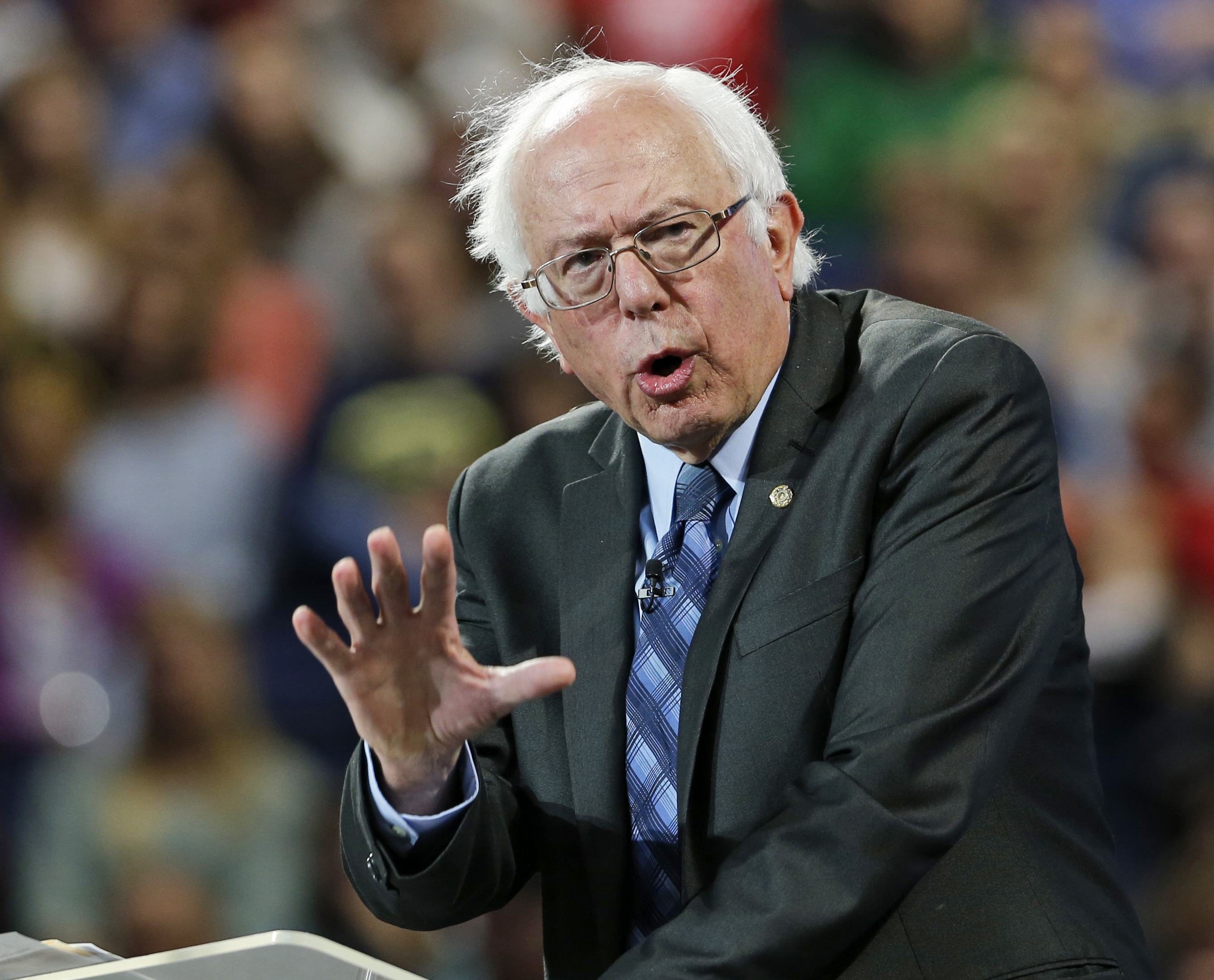What Bernie Sanders can teach secular liberals about the value of faith
The religious are not simply fools whose influence on politics must be stamped out


A free daily email with the biggest news stories of the day – and the best features from TheWeek.com
You are now subscribed
Your newsletter sign-up was successful
These days, when history is made, most people don't expect it to happen on the campus of a conservative Christian college. But that's exactly where it happened Monday, when Bernie Sanders, of all people, made a historic visit to Liberty University, and proved what is perhaps the one thing many Democrats fear most: that religion will always be a core part of American politics.
And that's a good thing.
The socialist senator from Vermont surely knew he was breaking new ground when he decided to bring his message of economic justice to Liberty University, which boasts Jerry Falwell as its founder and Republicans from Jeb Bush to Ted Cruz to Donald Trump as recent esteemed guests. Capitalizing on his outsized popularity with the liberal base, Sanders found a smart way to boost his profile even further while capturing imaginations about just how broadly his message might be received — an important seed to plant for those unsure whether he could succeed in a general election.
The Week
Escape your echo chamber. Get the facts behind the news, plus analysis from multiple perspectives.

Sign up for The Week's Free Newsletters
From our morning news briefing to a weekly Good News Newsletter, get the best of The Week delivered directly to your inbox.
From our morning news briefing to a weekly Good News Newsletter, get the best of The Week delivered directly to your inbox.
But Sanders' proof of the importance of religion to American politics wasn't to be found in his economic moralism. It's a bank shot, captured in his own explanation of why he bothered with Liberty out of political principle, not just as a campaign strategy. He told his audience point blank: "It is harder, but not less important, to try to communicate with those who do not agree with us and see where, if possible, we can find common ground and, in other words, to reach out of our zone of comfort."
Approaching opponents in a spirit of friendship? That's one of the most difficult, awkward, and riskiest things for us humans to do. It's typically what separates the true leaders from the bogus ones. The secret is the spirit of forbearance — familiar to Christians as the divine spark that makes it possible to love both God and one's neighbor. So it's no surprise that, when a leader like Sanders summoned forth that humble attitude, he chose to go a Christian venue to showcase its political significance.
The ancient philosophers can attest that you don't need to follow Jesus to be a true friend. But the sad fact is that "secular values" haven't delivered us a culture of forbearance. In fact, they've done almost the opposite. Although observers — including some at Liberty — quickly confirmed that Sanders hadn't changed a lot of minds, the point of his visit wasn't the mind at all, but the heart, where we can embrace a kind of brotherhood or fellowship even when our rational, calculating minds have not been argued into capitulation.
That's a crucial lesson for secular Democrats, who have too often been tricked into believing that the religious are simply fools whose influence on politics must be stamped out. But it's also a vital lesson for Republicans, who are just starting to learn from the religious right's long traumatic experience with a form of politics that promised to leverage their morality so long as they checked their forbearance at the door. That combative form of politicized Christianity has been an almost total failure. Apparent gains, such as the turn in public opinion against abortion, have come despite the approach, not thanks to it.
A free daily email with the biggest news stories of the day – and the best features from TheWeek.com
Humility, forgiveness, and charity in the sense of brotherly love cannot arise from politics. Those things always come from a higher or deeper place, as viewers of Joe Biden's recent interview with Stephen Colbert might have noticed. Christians and secular Americans alike have fallen down on the job of carrying the spirit of forbearance into the harsh climate of politics, which will forever seem not just "broken," but irredeemably so, without it. Nevertheless, it's clear where to begin to right this wrong. As Bernie Sanders has revealed anew, to ground politics in a fuller friendship than politics itself can provide, politicians must turn to religious Americans, who know the source of that friendship in their bones.
Not that this should fill the religious with pride. Little should feel more humbling than being reminded by a politician of how they've failed, on their own terms, as friends.
James Poulos is a contributing editor at National Affairs and the author of The Art of Being Free, out January 17 from St. Martin's Press. He has written on freedom and the politics of the future for publications ranging from The Federalist to Foreign Policy and from Good to Vice. He fronts the band Night Years in Los Angeles, where he lives with his son.
